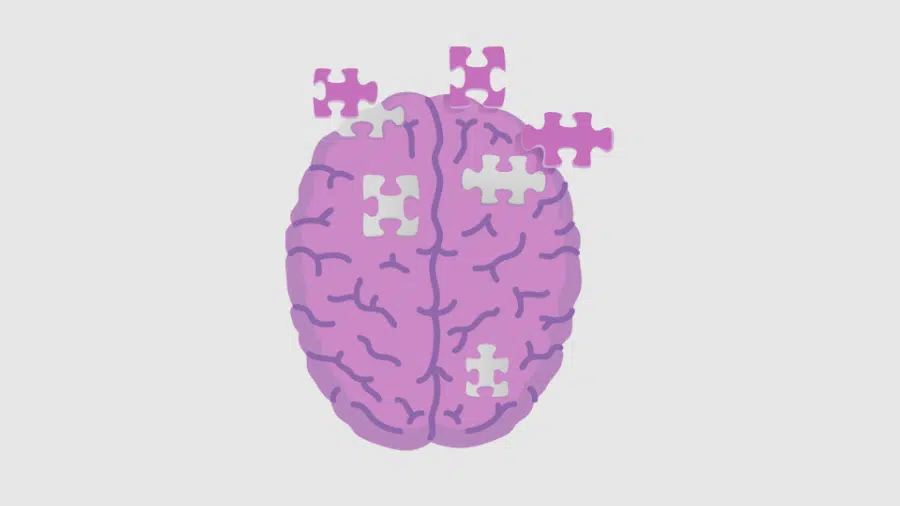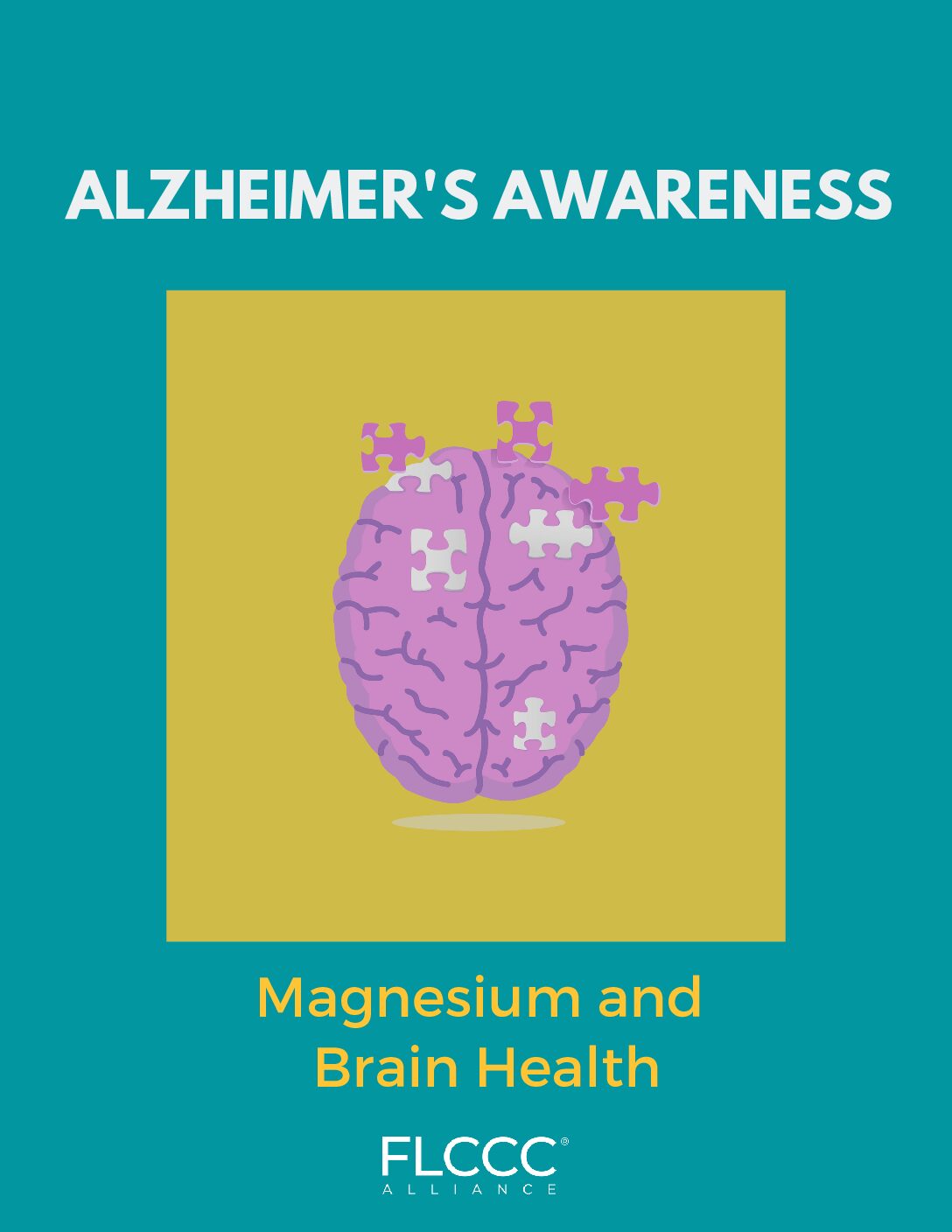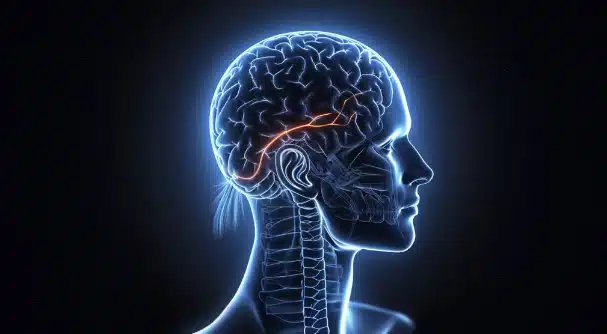
Question: Is magnesium good for brain health?
Answer: Yes!
Looking for ways to improve your brain’s age with no significant side effects? If you’re reading this, then you must have heard about the strong link between brain health and magnesium.
Don’t fret! If you’ve been feeling muddled, magnesium could be just the thing to help clear your mind. And if you’ve been feeling foggy, you wouldn’t be alone. Some studies have estimated up to 15% of Americans are living with magnesium deficiency.
Magnesium is important for people of all ages, no doubt. But there are a few groups that should be most keen to learn more:
- Those ages 40 or older
- People at risk of dementia
- Those living with chronic alcoholism
- Persons with uncontrolled diabetes
- People with digestive disorders (which may lead to nutrient malabsorption)
Even if you aren’t at risk, magnesium has the power to protect your brain for years to come. In this article, we’ll highlight the ten most powerful magnesium brain benefits currently known to health experts.
Let’s get to it! Download our magnesium brain benefits PDF or keep reading below.
What Does Magnesium Do for the Brain?
Magnesium is an essential mineral that plays a pivotal role in safeguarding the health of our brain. In a nutshell, it promotes optimal cognitive function. But it’s also fair to say it has multifaceted benefits extending to neuroprotection and much more.
Magnesium is a great mineral for the brain because it has both direct and indirect benefits. In addition to its neuroprotective qualities, magnesium also supports muscle and nerve function, regulates blood sugar levels, and promotes heart health.
Enticed? Let’s dive into our list below to see exactly how magnesium benefits brains!
10 Magnesium Benefits for the Brain
Here’s our list: ten positive effects of magnesium for brains and beyond.
- Neuroprotective Properties
- Regulation of Neurotransmitters
- Anti-Inflammatory Effects
- Vasodilation and Blood Flow
- Regulation of Calcium Levels
- Blood-Brain Barrier Integrity
- NMDA Receptor Function
- Reduces Inflammation
- Enhances Mood
- Promotes Sleep
1. Neuroprotective Properties
Magnesium has neuroprotective properties, meaning it helps protect brain cells (neurons) from damage and supports their overall health. This protection may contribute to the prevention of age-related cognitive decline.
2. Regulation of Neurotransmitters
Magnesium plays a role in the regulation of neurotransmitters, which are chemical messengers that transmit signals in the brain. Balanced neurotransmitter activity is crucial for mood, memory, and cognitive function.
3. Anti-Inflammatory Effects
Chronic inflammation is believed to play a role in neurodegenerative conditions like Alzheimer’s disease. Magnesium has anti-inflammatory properties, and maintaining an appropriate level of magnesium may help reduce inflammation in the brain.
4. Vasodilation and Blood Flow
Magnesium supports vasodilation, the relaxation of blood vessels. Proper blood flow is essential for delivering oxygen and nutrients to brain cells. By promoting healthy blood flow, magnesium may support brain function.
5. Regulation of Calcium Levels
Magnesium helps regulate calcium levels in the brain. Calcium is essential for neurotransmission, but excessive calcium can be toxic to neurons. Magnesium helps maintain calcium at appropriate levels, preventing calcium-induced neuronal damage.
6. Blood-Brain Barrier Integrity
The blood-brain barrier (BBB) is a protective barrier that separates the bloodstream from the brain. Magnesium may help maintain the integrity of the BBB, ensuring that harmful substances do not easily enter the brain.
7. NMDA Receptor Function
Magnesium plays a role in the function of N-methyl-D-aspartate (NMDA) receptors, which are involved in learning and memory. Proper NMDA receptor function is essential for cognitive processes.
8. Reduces Inflammation
Magnesium has anti-inflammatory effects that can help reduce swelling, joint pain, and muscle soreness. It is especially beneficial for athletes who exercise regularly or have intense workouts. Chronic inflammation is believed to play a role in neurodegenerative conditions like Alzheimer’s disease
9. Enhances Mood
How’s your mental health these days? Research suggests that supplementing with extra magnesium may be beneficial for those struggling with depression or anxiety disorders. Plays an important role in serotonin production, a neurotransmitter that helps regulate moods in the brain.
10. Promotes Sleep
Magnesium regulates several neurotransmitters that impact sleep. Studies suggest that higher levels of magnesium may promote better sleep quality.
What is the Best Form of Magnesium to Take?
If you’re looking for a magnesium supplement for the first time, you might be surprised to learn there are many different forms to choose from like magnesium oxide and magnesium citrate. Not all forms are created equal, however. For example, magnesium oxide and citrate have poor absorption and function more or less as a laxative.
If you want to readily increase magnesium levels, these are the forms of magnesium are best:
- Magnesium Taurate
- Magnesium Malate
- Magnesium Glycinate
- Magnesium L-Threonate
When it comes to improving brain function, there is one form that works best: Magnesium L-threonate.
What makes this form of magnesium so special? It is specifically designed to cross the blood-brain barrier. That means it can deliver magnesium directly to the brain where it is needed.
Here’s a common question: how many mg of magnesium should you take per day? The answer depends on which form you are taking.
For example, to achieve cognitive benefits with magnesium L-threonate, a starting dose of 100 to 200 mg daily is suggested. Then, increase the dose as tolerated up to 300 mg daily for women and up to 400 mg daily for men.
Note: A 2,000 mg dose of Magnesium L-threonate as ‘Magtein’ contains 144 mg of elemental magnesium. Some food labels list the Magtein amount, while others list the elemental magnesium amount.
Can Magnesium Reduce the Risk of Alzheimer’s?
Alzheimer’s disease is a neurodegenerative disorder that is characterized by the loss of brain cells. One of the hallmarks of Alzheimer’s disease is the accumulation of amyloid plaques in the brain.
Amyloid plaques are made up of a protein called amyloid beta. Magnesium L-threonate has been shown to improve cognitive function in people with Alzheimer’s disease by reducing the harm caused by these plaques.
A study published in Nature Medicine found that magnesium L-threonate reduced the formation of amyloid plaques in the brain and improved cognitive function in mice.
Another study, published in the journal Alzheimer’s & Dementia, found that magnesium L-threonate improved cognitive function in people with mild to moderate Alzheimer’s disease with improved memory and thinking skills.
Natural Sources: Magnesium Rich Foods
It can be difficult to get enough magnesium in your daily diet through food alone – but not impossible. If you are looking for natural sources, there are plenty of foods to help increase magnesium intake. These include:
- Leafy greens
- Avocados
- Nuts (almonds, cashews, Brazil nuts)
- Legumes (lentils, beans, chickpeas, peas)
- Tuna
- Dark chocolate (in moderation!)
- Brown rice
With options like that, a higher dietary magnesium intake can be delicious!
Other Benefits of Magnesium
Magnesium is an incredible mineral, involved in over 600 enzymatic actions in the body. The brain benefits are just the beginning! Magnesium is also helpful in the following ways:
- Supports healthy bones
- Supports cardiovascular health
- Regulates blood sugar levels by reducing insulin resistance
- Supports reduction in high blood pressure
There is also emerging research about the use of magnesium for the treatment of long covid and/or vaccine injury. Is there anything this miracle mineral can’t do?
Wrapping Up
Magnesium is a proven game-changer for brain health and much more. From boosting mood to better sleep and overall wellness, it’s a mineral we shouldn’t overlook. Whether through diet or supplements, make sure you’re getting your magnesium fix. After all, a healthy brain is key to a great life.
One last thing: remember to check with your healthcare provider before starting any new supplements or increasing doses.






